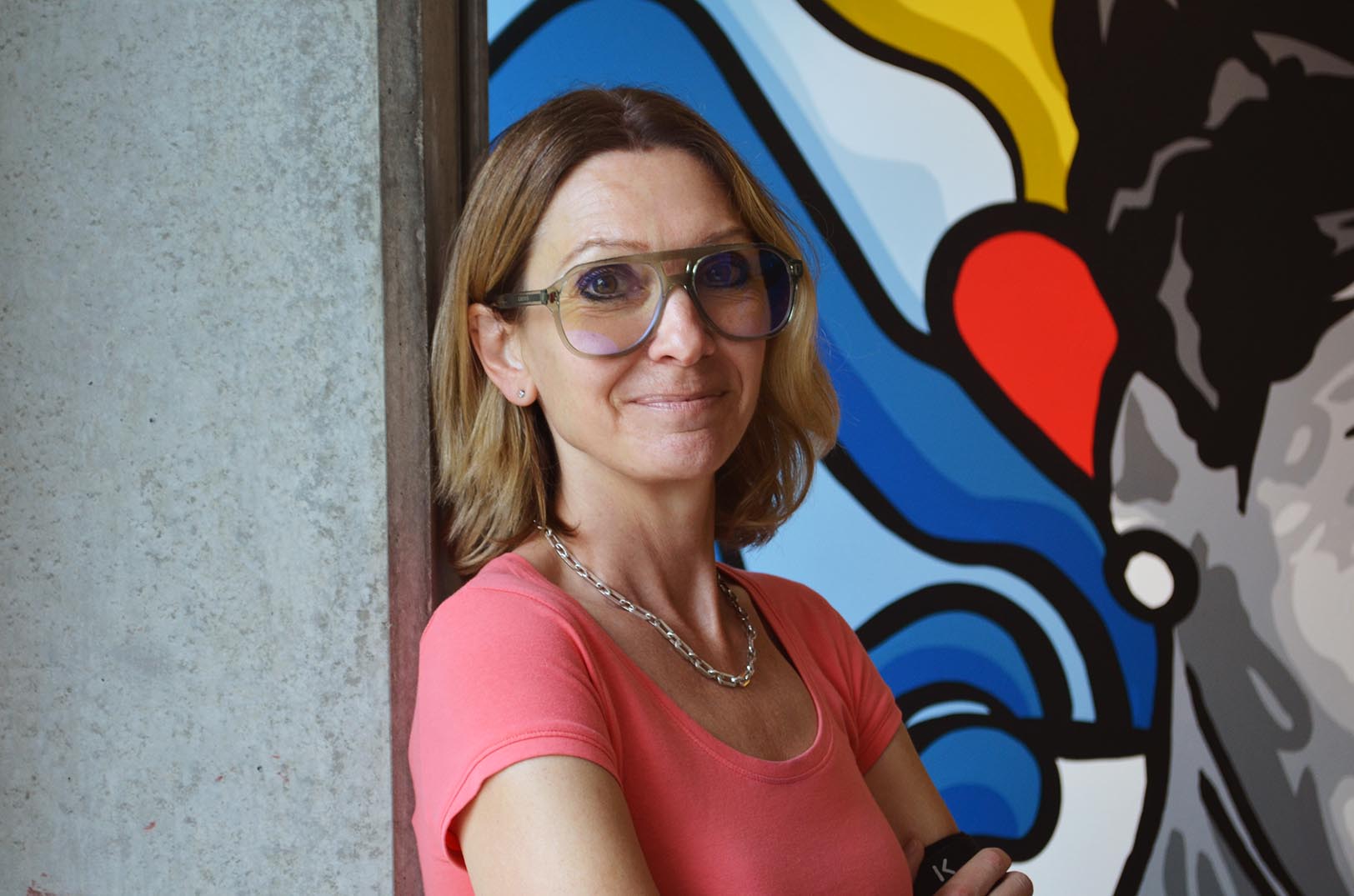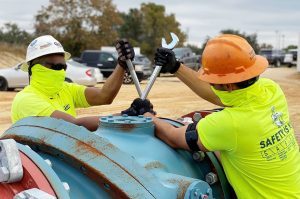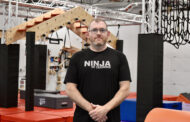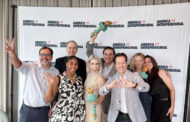Editor’s note: Startland News selected 10 Kansas City firms to spotlight for its annual Startups to Watch list, now in its seventh year recognizing founders and startups that editors believe will make some of the biggest news in the coming 12 months. The following is one of 2022’s companies. Click here to view the full list of Startups to Watch — presented by sponsors Husch Blackwell and the Ewing Marion Kauffman Foundation.
Now offering the third version of its safety- and health-focused technology, Kenzen is wearing its Heartland pride on its sleeve.
“From a numbers standpoint, most of our investors are now in the Midwest,” said Heidi Lehmann, co-founder and president of Kenzen, which originated in Silicon Valley before moving to New York, and finally to Kansas City. “There are a lot of investors who get what we are doing.”
Elevator pitch: Kenzen’s mission is to harness the power of physiology data to predict and prevent industrial workforce injuries and improve productivity.
- Founders: Heidi Lehmann, Nora Levinson
- Founding year: 2016
- Current employee count: 15
- Amount raised to date: $4.3 million
- Noteworthy investors: Digitalis Ventures, Royal Street Ventures, Working Capital Fund, Manifold Group, Signal Peak VC, Sofia Fund, KCRise Fund, Examinetics
- Programs completed: Plug and Play Topeka, Plug and Play Japan
And early customers — like Kansas City-based Evergy and Garney Construction — get it too. Their appetite for Kenzen’s wearable health monitoring device helped prompt the startup’s relocation, she said.
“Usually you see the opposite trend,” Lehmann said. “People might start a company in the Midwest and then go to the coast to get big. We looked at it the opposite way. We think the Midwest is going to drive the revolutions. We think this is where the best strategic alliances are going to be.”
Kenzen’s history starts years ago when the brother of one of its original science co-founders, the late Dr. Sonia Sousa, passed away. Three months after a physical where he was given a clean bill of health, Sousa’s brother was diagnosed with Stage-4 cancer.
“How does someone go from being so healthy, to being not healthy this quickly?” Lehmann said of the question that nagged Kenzen’s early co-founders and led to its eventual technology. “We are all focused on prevention and solving problems. Where we have expertise is around core body temperature. There was a lot of validation to get us to the point where we could predict and prevent heat injury and illness.”
As temperatures rise across the nation, focus has shifted to applying Kenzen to workers in the industrial Midwest whose health and safety are at constant risk. Nora Levinson, co-founder, and Skip Orvis, former vice president of engineering, helped build the model.
Click here to check out Kenzen’s wearable tech.
“The design has changed over time,” Lehmann said. “Initially it was much thinner and there was an adhesive worn on the chest. We also designed it for intrinsic safety, which means there is space around the battery. We’re using low energy bluetooth. It’s very rugged for industrial environments.”
One of the biggest comments the company receives from workers is that they forget they’re wearing it, she said, adding the device can be worn in eight places on the body, but it is not recommended to be worn like a watch.
“The reason it is not on the wrist is because of the amount of cartilage and bone and it is noisy. For core body temperature, you need a flat plane where you can get the vital readings.”
The company originally got its start in the sports industry. One of its earliest investors: the San Francisco 49ers. Lehmann said if the market was there, Kenzen would revisit such use for the technology.
“I could see that we could get into professional sports or for at-risk individuals, which would be like youth sports,” Lehmann said in the hypothetical. “You need to stay focused as a startup, but I would say we will get back into sports if the demand is there. The next industry we would consider is the military.”
The company is already projecting growth even without new verticals.
“We are in the process as we scale in getting a key security certification called SOC 2,” Lehmann said. “Most big companies, whether they are mining or construction, are going to require a security audit. We are working hard on that to expand our clients.”
The company plans to stay in Kansas City, she said, but Kenzen could potentially open outposts in Texas, Florida or Arizona where it’s built additional client bases.
“As it makes sense, certainly we can expand,” Lehmann said.
At the company’s core regardless of location or size?
“It’s always about the people,” Lehmann said. “Starting out, it’s about building a network before you need it. Making sure you have something that will scale and is defensible are things to check off. You have to have a flexible mindset because things always change.”
The Kansas City Startups Watch in 2022 list is made possible by presenting sponsors Husch Blackwell and the Ewing Marion Kauffman Foundation, though independently produced by Startland News.
With its headquarters in Kansas City — and more than 800 attorneys across 25 U.S. locations, including its virtual office, The Link — Husch Blackwell’s industry-centric approach and commitment to diversity, equity and inclusion work give the firm a deep understanding of what its clients face every day.
For more information on what Husch Blackwell can do for your business, visit www.huschblackwell.com/capabilities
Kansas City Startups to Watch in 2022
• afloat
• Approach
• Interplay
• Kenzen
• Lula
• MyANIMl
• Particle Space
• SOFTwarfare
• Venboo
• VinCue
Startups to Watch is now in its seventh year, thanks to ongoing support from the Ewing Marion Kauffman Foundation, a private, nonpartisan foundation that works together with communities in education and entrepreneurship to create uncommon solutions and empower people to shape their futures and be successful.
For more information, visit www.kauffman.org and connect at www.twitter.com/kauffmanfdn and www.facebook.com/kauffmanfdn









































